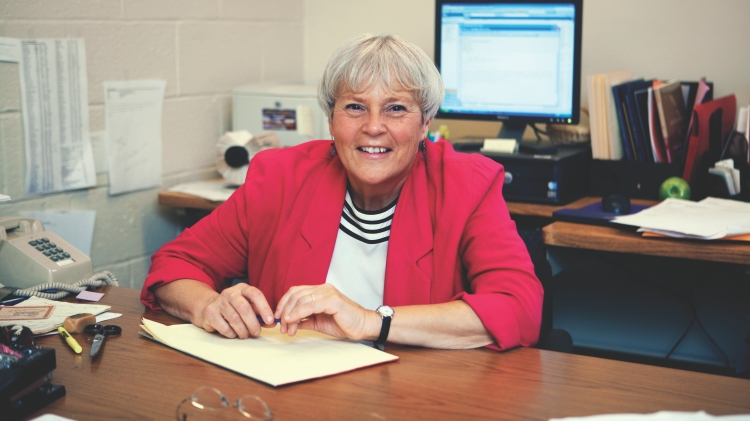
By
Law School Professor Ingrid Hillinger is a 37-year teaching veteran, and — according to a recently published book — one of the best in her profession. But, believe it or not, she still gets nervous in front of a classroom.
“Terrifying,” she quips, describing the experience.
Nor does Hillinger rely on a systemic, ordered methodology in her work.
“I teach by instinct,” she explains. “I love to teach, but I have no plan. In my whole life, I’ve only planned one thing: one of my three children. I feel lucky to have a job I love so much — it just couldn’t be better.”
Hillinger was among 26 law teachers profiled in What the Best Law Teachers Do, which is based on a four-year study of law educators who have a significant, positive and long-term effect on their students. The book — authored by Gonzaga School of Law Professor Gerry Hess, University of New Hampshire School of Law Professor Sophie Sparrow and Michael Hunter Schwartz, dean and professor of law at the University of Arkansas-Little Rock William H. Bowen School of Law — explores the qualities that make these select professors stand out from their peers, such as their class preparations and teaching methods, and how they relate to students, provide assistance and assess their learning.
A 25-year member of the BC Law faculty who teaches a variety of commercial law/bankruptcy courses, Hillinger is described as an inspiring role model for her students, one who carefully prepares them to practice law, devotes herself to helping them grow personally and professionally, and continues to mentor former students long after graduation.
Researching their book, the authors visited BC Law to observe Hillinger’s lectures and conduct lengthy interviews with her, BC Law Dean Vincent Rougeau, her colleagues, as well as students and alumni. The authors said they felt moved, inspired and excited to change their own teaching methodology based on what they observed and heard.
“You don’t need to be brilliant to be effective,” says Hillinger, who won a BC Distinguished Teaching Award in 2002. “You need to be clear. If a student doesn’t get it, then it’s been a waste of time. I think the nicest thing you can say about me is that I care about the students. If you care, they care back.”
Hillinger says she lets students know what they’re in for at the outset: “On the first day, I’ll say something like, ‘All the rumors you’ve heard are true: This is BC Law’s hair-and-weight-loss class, and I eat a bowl of code provisions for breakfast.’ Yes, I’m hard and demanding, but I try to make things fun, too — a little role-playing, or just saying something nobody expects.”
Laptops are banned from Hillinger’s classroom. “They interfere with the conversations going on. I made that decision after a lot of thought — and the students thanked me.”
But what happens between the classes is important, too: For example, Hillinger invites her first-year students, in groups of six, to “high tea” in her office. “It’s the best thing I’ve done,” she says. “We have these very intense classes, and then they come up here for a couple of hours. It’s magical — they get to know me and I get to know them. Even students who don’t have any intention of going into commercial law still like the opportunity to just sit and talk.”
Law School Assistant Director of Student Services Tiffany Gabrielson JD’10 readily endorses her former teacher. “She wants students to be better people, not just better lawyers. Ingrid is not afraid to tell people they’re wrong; that’s something you have to be used to if you want to learn to be a lawyer. Students know she can be exacting, but it’s because she cares.”



